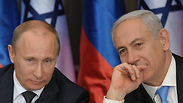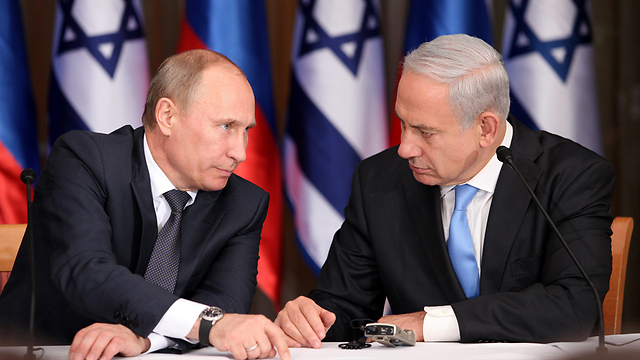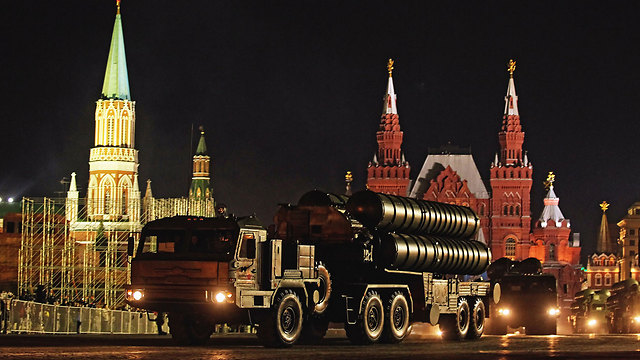
Prime Minister Benjamin Netanyahu spoke with Russia's president to convey his displeasure over Russia's decision to sell advanced anti-aircraft missiles to Iran. Putin for his part told Netanyahu that the missiles had only defensive capabilities and "pose no threat" to Israel.
Netanyahu's office said he spoke with Vladimir Putin Tuesday to protest Russia's planned delivery of advanced S-300 air defense missile systems to the Islamic Republic. The Kremlin confirmed the call in a statement on Tuesday.
A statement from Netanyahu's office said he "expressed Israel's dismay at the decision... (and) told President Putin that this step will only increase Iran's aggression in the region and will destabilise security in the Middle East."
In response, "Vladimir Putin explained the rationale for the decision in the current context and highlighted the fact that due to their tactical and technical characteristics, S-300 have a purely defensive significance and pose no threat to Israel," the Kremlin said in a statement.
Related stories:
- S-300 will not prevent potential Israeli strike on Iran
- Why Putin is playing friendly with Iran
- Kremlin confirms oil-for-goods swap with Iran under way
Israeli military officials consider the Russian arming of Iran an additional obstacle before any potential military strike against Iran's nuclear facilities.
Netanyahu's office said he told Putin the move would only increase Iran's aggression in the region and undermine security in the Middle East.
Israel says the Russian announcement is a direct result of the international community's framework nuclear deal with Iran. Israel vehemently opposes any deal with Iran that does not dismantle the military capability of its nuclear program.
"Instead of demanding Iran put an end to the terrorism its instigates in the Mideast and around the world, it is being allowed to attain advanced arms which will only spur its aggressions," Intelligence Minister Yuval Steinitz said Monday in response to the Russian move.
US Secretary of State John Kerry raised concerns with his Russian counterpart over Russia's decision, the White House said on Monday. "It was an opportunity for Secretary Kerry to raise our concerns," White House spokesman Josh Earnest told reporters at a daily briefing.
The US military echoed the statement, with Pentagon spokesman Colonel Steve Warren saying "Our opposition to these sales is long and public. We believe it's unhelpful," he told reporters.
Iran for its part defended the move, with Iranian Defence Minister Hossein Dehghan saying the decision could lead to an expansion of cooperation and help stability in the region, Iranian state media said.
"This order shows the political will of the leaders of the two countries for developing and promoting the levels of cooperation in all fields," Dehghan said, according to Islamic Republic of Iran Broadcasting. "The expansion of the two-way cooperation and the development of cooperation with other neighboring countries in various fields can be effective in establishing stability and security in the region."
Russia signed the $800 million contract to sell Iran the S-300 missile system in 2007, but later suspended their delivery because of strong objections from the United States and Israel.
Iran filed a lawsuit with a court in Geneva seeking $4 billion in damages for breach of contract, but the court has not issued a ruling.
Russia's Defense Ministry will be ready to swiftly deliver the S-300 if it gets the green light to do so, Interfax news agency quoted an official at the ministry as saying Monday.
Russia has insisted that its decision in 2010 to freeze the S-300 delivery was based on the sanctions the United Nations Security Council imposed on Iran over its nuclear program.
Reuters, The Associated Press, AFP and Attila Somfalvi contributed to this report

















